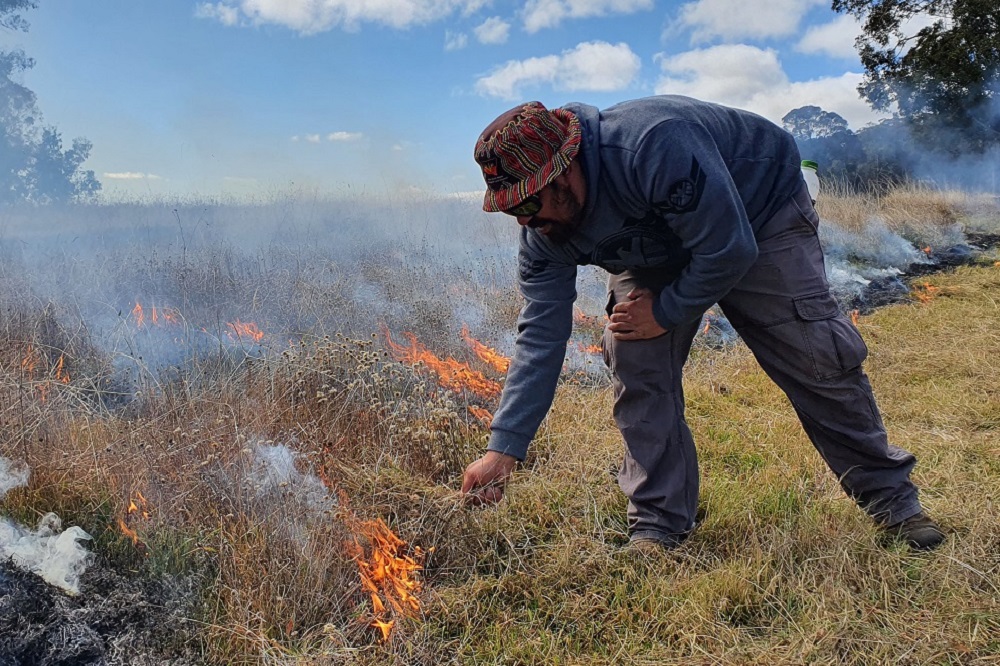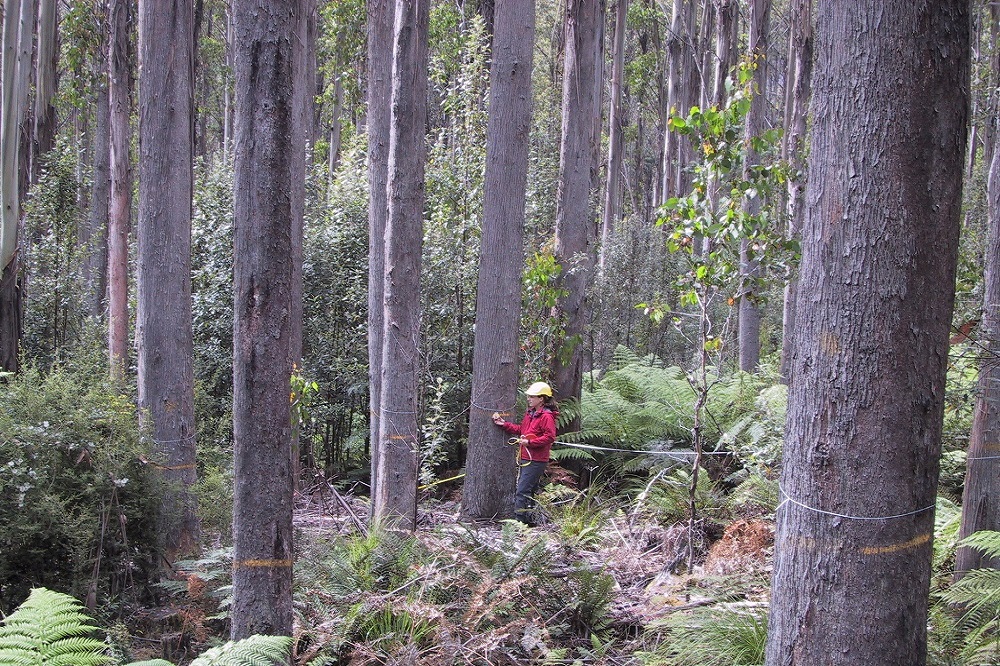NSW Regional Forest Agreements MER Plan
The NSW Government has committed to ecologically sustainable forest management under the NSW Forest Management Framework and Regional Forest Agreements (RFAs). The Framework also commits NSW to continually improve forest management through monitoring, research and reporting.
The NSW Regional Forest Agreements Monitoring, Evaluation and Reporting Plan (the RFA MER Plan) sets out priority actions, and roles and responsibilities to monitor, evaluate and report on the outcomes sought in the three NSW Regional Forest Agreements (RFAs). The RFA MER Plan covers all forests on all tenures within the three NSW RFA regions.
Traditionally, many monitoring programs rely on ‘backward-looking’ approaches that aim to detect changes in long-term condition and trends. This approach can lead to monitoring a large number of things which stretches available resources thinly. As a result, key parameters may be poorly monitored. This plan aims to shift to a strategic, forward-looking approach to information gathering. This will rely on predictive modelling and targeted monitoring to improve those models and certainty over time. This will provide a stronger evidence base on the stressors impacting forest ecosystem resilience. As a result, the community and decision makers will have the information they need to make informed decisions about landscape scale management strategies to improve forest outcomes.
Delivering priority information for RFA outcomes
This is Australia’s first MER plan dedicated to RFAs. This initial plan sets out the vast array of existing forest monitoring and research already undertaken across NSW RFA regions. It is a first step as NSW continues to join up science across government, and sharpen investment on priority monitoring to deliver outcomes and timely information for decision making. It establishes early logic links between different information sources and RFA outcomes in one place for ease of access for the community.
The RFA MER Plan is structured around climate, cultural, ecological, social and economic themes that address the commitments and obligations under the NSW Regional Forest Agreements. Each theme is divided into focus areas that list actions to monitor, evaluate and report on outcomes of the NSW RFAs.
This structure provides an easy way for the reader to navigate a set of diverse themes. However, this plan recognises we live in linked social-ecological systems, where issues such as predicted changes in climate will impact all social, ecological and economic values associated with forests. As another example, Aboriginal people connect spiritually, culturally and economically to Country and forests in a holistic manner.
Monitoring and improving forest outcomes and management in NSW
The NSW Government has established the NSW Forest Monitoring and Improvement Program (the program). The program will improve the evidence-base for decision-making for forest management state-wide across tenures including Regional Forest Agreements. This will strengthen the NSW Government’s ability to strategically and adaptively manage forests over time.
This RFA MER plan is one element of the program. The program has also delivered tailored plans to monitor the effectiveness of forest management to achieve planned outcomes for protecting environmental values and maintaining ecosystem health.
The program is based on good-MER practice and standards. For example, performance triggers and thresholds will be developed and employed where possible. This recognises monitoring has a greater probability to inform management where thresholds are in place. In addition, MER needs to be capable of accommodating different spatial and times scales. Importantly, the program takes a risk-based approach to assess the need to monitor or evaluate condition and threats based on economic, social and environmental impact.
In response to community need and findings in recent reviews, the program is now establishing baselines and objective indicators as the basis for long-term monitoring and predictive modelling in NSW RFA regions. The program will be open source and managed to ensure quality and consistency. In addition, the program will deliver scenarios for the future of NSW forests. Projected changes in climate will be incorporated into all scenarios. This work will assist policy-makers to make informed, evidence-based decisions about the future management of forests.
Adapting this plan
Managing monitoring programs in an adaptive manner is good practice. Monitoring programs need to be able to explore, evolve and develop in response to new questions, or improve monitoring approaches and protocols.
This plan will not set and forget. The NSW Forest Monitoring Steering Committee will continue to review and update this plan to address information gaps and improve efficient and coordinated delivery of forest monitoring, evaluation and reporting for NSW forests.
Engaging the community
The Commission is keen to hear from interested parties and the community about this plan. For example, other monitoring or research that could be included in the plan to inform RFA outcomes or how the plan could be improved more generally. Find out more about engagement here.
| ▸ How was the plan developed? |
| ▸ What is the scope of the plan? |
| ▸ Where are the RFA regions? |
| ▸ What are the research priorities? |
| ▸ What are the sustainability indicators? |






